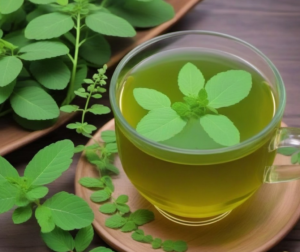Cinnamon is a beloved spice that is known for its warm, sweet aroma and distinct flavor. It has been cherished for centuries across various cultures for both its culinary and medicinal properties. Cinnamon has maintained its status as a versatile ingredient with numerous health benefits. In this article, we will delve into understanding why cinnamon is good for your body.
Historical Significance of Cinnamon

Origins and Early Uses
Cinnamon’s history can be traced back to ancient Egypt, where it was highly prized and used in various rituals and as a flavoring agent. It was also valued in ancient China and mentioned in Chinese writings dating back to 2800 B.C. Cinnamon’s popularity spread through trade routes, reaching the Middle East and Europe.
Medicinal Uses in Ancient Times
Cinnamon was revered in traditional medicine systems such as Ayurveda and Traditional Chinese Medicine (TCM) for its medicinal properties. It was also used to treat various ailments such as respiratory problems, digestive issues, and menstrual disorders. Its warming properties made it particularly useful in improving colds and circulation.
Nutritional Composition of Cinnamon
Cinnamon is loaded with beneficial compounds that contribute to its health-promoting effects. It is rich in antioxidants, such as polyphenols, which help protect the body against oxidative stress and inflammation. It also contains essential oils, primarily cinnamaldehyde, which gives cinnamon its characteristic flavor and aroma.
Key Nutrients Found in Cinnamon
- Fiber: Cinnamon is a good source of dietary fiber, which supports digestive health and helps regulate blood sugar levels.
- Vitamins and Minerals: It contains small amounts of vitamins C and K, as well as minerals like calcium, iron, and manganese, which are essential for overall well-being.
Health Benefits of Cinnamon
Blood Sugar Control
One of the most well-researched benefits of cinnamon is its ability to improve insulin sensitivity and lower blood sugar levels. Some studies have shown that cinnamon may help reduce fasting blood glucose levels and improve insulin resistance in individuals with type 2 diabetes[1]. Consuming cinnamon regularly may also aid in managing postprandial blood sugar spikes.
Anti-inflammatory Properties
Cinnamon exhibits potent anti-inflammatory effects due to its high concentration of antioxidants[2]. We know that chronic inflammation is linked to various health conditions such as heart disease, cancer, and neurodegenerative disorders. Incorporating cinnamon into your diet may help combat inflammation and reduce the risk of developing these diseases.
Heart Health
Several studies have suggested that cinnamon may promote heart health by lowering cholesterol and triglyceride levels. Cinnamon reduces LDL (bad) cholesterol and triglycerides while increasing HDL (good) cholesterol and thus helps lower the risk of heart disease and improve overall cardiovascular function.
Is it Good to Drink Cinnamon Every Day?

Moderation is Key
With so many health benefits we can safely say Cinnamon is good for your body. However, moderation is key when consuming it regularly. Excessive intake of cinnamon, especially in powdered form, may lead to potential health risks due to its coumarin content, which can be toxic to the liver in high doses. It’s advisable to limit cinnamon consumption to moderate amounts and opt for Ceylon cinnamon, which has lower coumarin levels compared to the more commonly available Cassia cinnamon.
Sustainability and Cinnamon Production

Environmental Impact
Cinnamon cultivation plays a significant role in local economies. It is primarily farmed in countries like Sri Lanka, Indonesia, and Vietnam. However, unsustainable farming practices, such as deforestation and monoculture farming, can have bad effects on biodiversity and ecosystem health. Supporting sustainable cinnamon production methods, such as agroforestry and organic farming, can help mitigate these environmental impacts.
Fair Trade and Ethical Sourcing
Choosing cinnamon products that are certified organic and Fair Trade ensures that farmers receive fair wages and work under safe conditions. By supporting ethical sourcing practices, you can contribute to the well-being of cinnamon-producing communities and promote sustainable agricultural practices.
Conclusion
In conclusion, cinnamon is not only a flavorful spice but also a nutritional powerhouse with numerous health benefits. It has a rich history and has been used for centuries. Cinnamon is good for your body and has a net positive effect. It is one of nature’s gifts that has a lot of benefits. Try including cinnamon in your daily diet to experience its goodness and share your favorite cinnamon recipes.
What’s more? Learn about some traditional herbs that alleviate pain and more flavourful organic seasoning.





